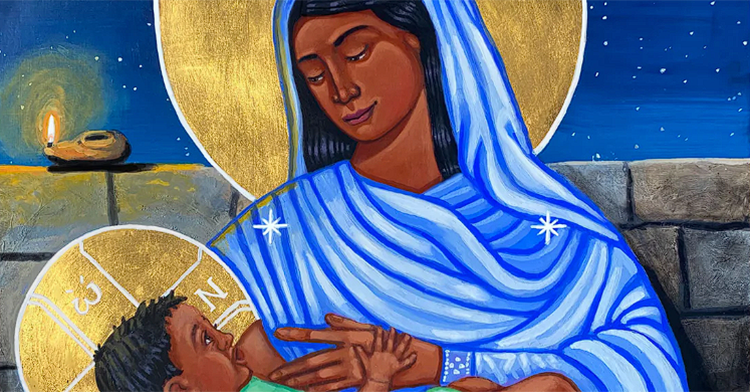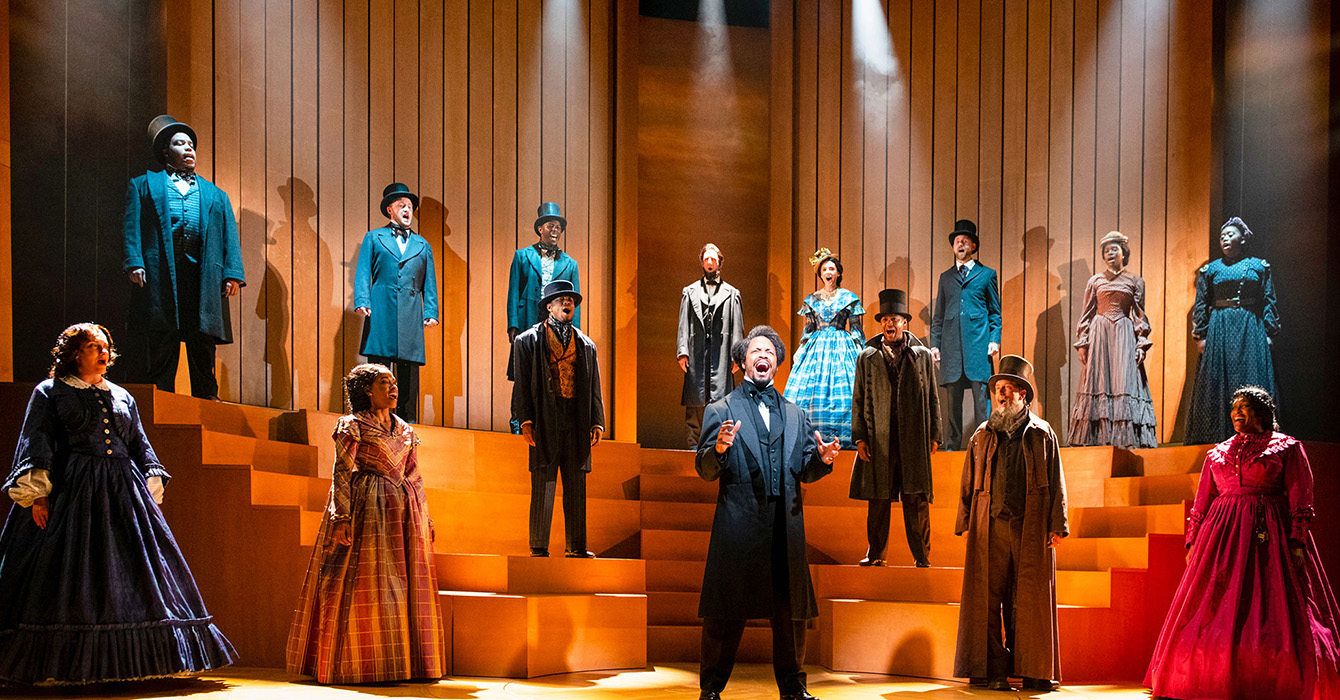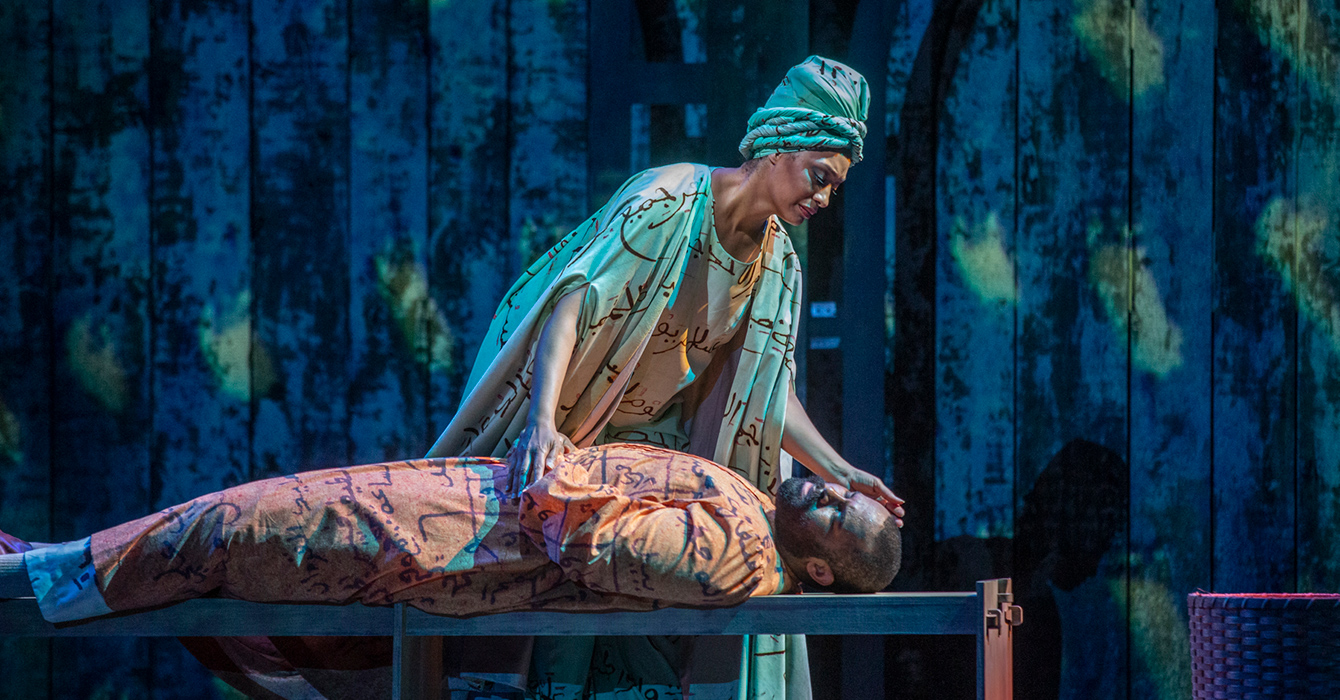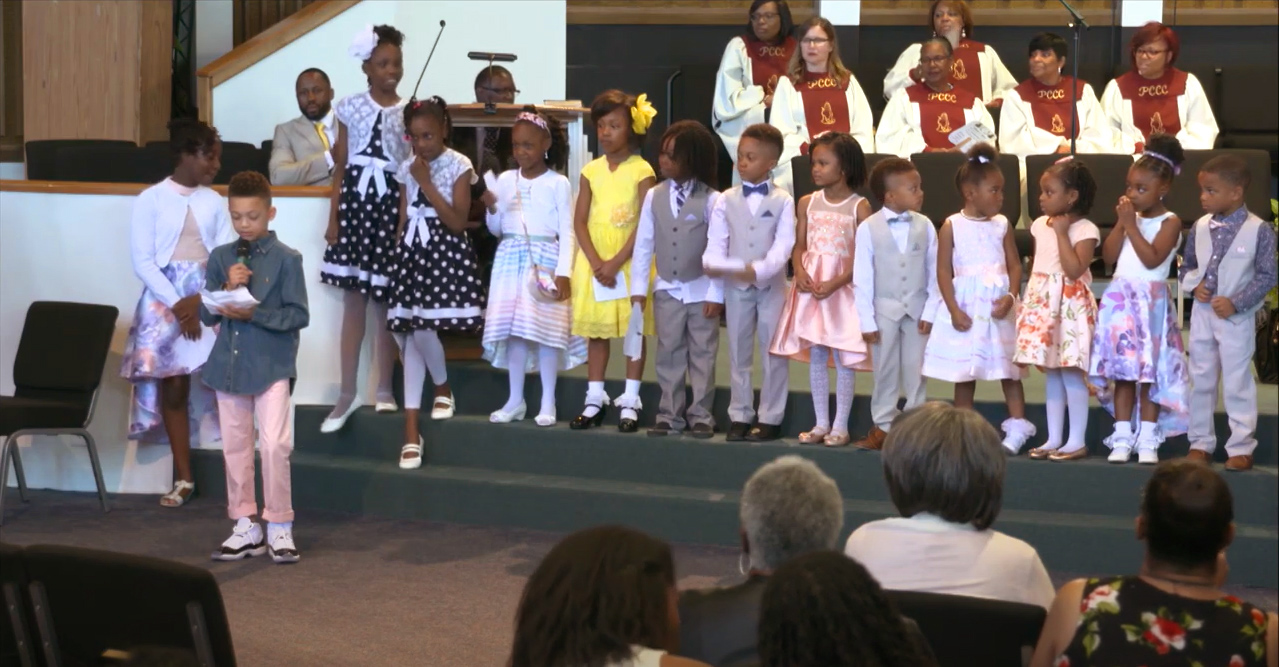The important question when engaging culture is not, “Do I like this?” but rather, “What’s going on here?” said Jeremy Begbie, the Thomas A. Langford Research Professor of Theology and director of Duke Initiatives in Theology and the Arts at Duke Divinity School.
By engaging works of art in this way, Christians can learn about the Holy Spirit, about the culture around them, and about other people, he said.
Begbie, a systematic theologian who trained as a concert pianist, specializes in multimedia performance-lectures which demonstrate the interplay between theology and the arts.
He is ordained in the Church of England and in addition to serving on the Duke Divinity faculty is a senior member of Wolfson College, Cambridge, and an affiliated lecturer in the faculties of divinity and music at the University of Cambridge.
Previously he has been associate principal of Ridley Hall, Cambridge, and honorary professor at the University of St. Andrews, where he directed the research project Theology Through the Arts at the Institute for Theology, Imagination and the Arts.
Begbie is the author of a number of books about theology, music and the arts, including “Resounding Truth: Christian Wisdom in the World of Music,” which won a 2008 Christianity Today Book Award.
He spoke with Faith & Leadership while at Duke’s 2011 Convocation & Pastors’ School to deliver the Gray Lecture. The following is an edited transcript.
Q: Is there any particular music you recommend for Christians?
Sometimes I’m asked in classes, “What kind of music do you like?” And I refuse to answer. The reason I refuse to answer is because it’s assumed that that’s the most important thing you could ever ask about music: “Do I like it?”
I think Christians need to learn -- if they’re really interested in engaging culture, they need to learn to ask a subtler question, which is: “What’s going on here?”
Why is this person doing this writing, performing, whatever? Why are people buying this, listening to it, whatever? What’s happening when they consume this music?
And then I think one learns a lot more. You learn a lot more about other people. We learn much more about the culture that we’re living in. And so I’m often recommending music that I know will be a bit of a stretch to perhaps the group I’m with, and they’ll recommend music to me that might be a stretch for me, but I think we’ll both just learn a good deal more and expand as Christians a little bit more.
Some examples: I’m a great fan of the Scottish Roman Catholic composer James MacMillan. James MacMillan is a -- that’s tough music. It’s not the toughest contemporary music, but you wouldn’t have it with the shower on, you wouldn’t have it as background music. It has to be listened to, but when you do -- I’ve known people who have no classical training and who would never think of going to a classical concert being totally mesmerized by this music and feel that they learned something as Christians about the Christian faith in the process.
That I would like to see going on more. A student in a class the other day played a song by Sufjan Stevens. I can’t remember which one it was, but it was about a serious topic. I thought it was banal given the serious topic.
It turned out a lot of the class, particularly those of a certain age group, in their 20s and early 30s, were deeply moved by this and thought that it was completely appropriate to those lyrics.
So I had to do a bit of thinking on that instead of just swipe that aside. I said … , “What’s going on here? Why do you hear profundity or at least music that’s appropriate to those words where I only hear trivialization? Because it sounds almost facetious, that sound, considering the profundity of the words.”
That’s an example of a two-way learning process where we need to challenge each other on Christian terms, to say, “Christianly, what can we learn about the gospel or the Christian worldview from this music?”
That’s the key question to ask, I think. Not instantly, “Do I like it or not like it?” -- because until we ask the first question, actually, you’re just not going to like it, but then we might be missing out on something fantastic.
Q: How do you learn to listen with the question, “How can I learn about the Holy Spirit through this music?” How would you train someone to hear the answer to that question?
Say with a composer like Bach, I would say, “Let’s listen to his music, and I’ll tell you a little bit about how it’s constructed, and then let’s listen again.”
Very often, depending on the music, you’ll say, “This is beautifully ordered music. It doesn’t sound chaotic, but it also sounds like he’s having a lot of fun. It sounds open, abundant, unpredictable. Hmm.”
Then I would try to ease from that into the Christian worldview, which sees the world as ordered and yet the Holy Spirit as the one who brings abundance, surprise, novelty, unpredictability, in the midst of and out of the order that’s in the world.
That’s the way I would go, and then I would actually say that I think that’s -- Bach himself wouldn’t say, “I composed with precisely that in mind,” but he turns out vast quantities of music that effectively are doing just that. So that music, to me, can speak of a worldview that takes the Holy Spirit seriously.
That’s the sort of way I would do that. And that takes a bit of time, and you’ve got to invite people to hear it in a certain way, but that’s all right. We’re always inviting people to hear things in certain ways. That’s fine.
Q: So what music do you listen to for enjoyment?
I listen to all sorts of music. There’s very little music I don’t listen to.
I have my favorites, I suppose. I love Bach, I like a lot of 19th-century music. I like particular singers. I think Michael Bublé is a fantastic artist; his voice is extraordinary. Sufjan Stevens is a very gifted songwriter.
But among the classics, I listen to most things and gain a great deal from them. There’s very little music I really can’t stand. Very little.
Q: Do you listen to pop music?
To a certain extent, yes. I find the sort of song that you’d find on American Idol fairly dull. I think jazz is more interesting generally. But there is some interesting pop. I think a lot of U2’s music is impressive.
But as far as, say, the 20 or top 50 songs are concerned, it’s not that I find this music offensive; I just find it less and less interesting now than I used to.
Q: Does it matter if the art is good or not, or is the experience enough? What if someone loves and is inspired by the paintings of Thomas Kincade or heavy metal music, or whatever? Does it matter?
I believe that artistic -- let’s call it artistic quality for the moment -- matters. That’s a very hard thing to define, but it would include something like unity and diversity, subtlety, different levels of meaning, the ability to generate fresh meaning in the experience each time you hear it, look at it, or whatever.
I do believe that if there’s a hymn used in a church, it matters that it’s artistically good, and I believe that because I think God calls us to be creative agents who can do subtle and complex things as well as basic and direct things.
Now, having said that, I want to say there is a time and a place to be very direct and not subtle or complex. So I can say to my wife, “I love you.” It’s not subtle. And at times I just need to say that. Indeed, in any marriage, if you don’t you’re in trouble. But there’s a time to send her a Shakespeare sonnet. There’s a time to play a Chopin nocturne. There’s a time to use a Michael Bublé song. These are subtler. They bear repeated listening. They will yield more and more with each hearing, and I think you can show they have objective qualities that make this possible.
In worship, I think there is a place for the unadorned love song, so I will defend even the simplest contemporary worship song, because I think within the spectrum of Christian worship it has a place and is needed. But there’s also a place for a Palestrina anthem, a place for Brahms, and a place for Messiaen.
Q: I’ve read that you describe yourself as a systematic theologian and not an “arts theologian.” What’s the distinction?
I see myself primarily as a theologian in the arts rather than an artist or musician that happens to dabble in a bit of theology. So I’m concerned with exploring and expounding the riches of the Christian faith, and doing so especially in the world of music or painting or sculpture or whatever. I’m trying to bring a rigor of Christian thought to the arts.
Q: In your career you cross a lot of boundaries -- theology, arts, academic, performance, verbal, non-verbal. Do you see value in that border crossing and interdisciplinarity in and of itself?
I’m a great believer in interdisciplinarity. For as long as I can remember, even as a child, I was always looking for connections between things.
I suppose that’s grounded in a deeper conviction about the coherence of the world -- that truth is ultimately one, that we’re not living in a totally chaotic world. It’s a world with distinctions and plurality and variety and diversity of parts, but it’s not a random world, flying apart.
And because God has made this world with a coherence and an order, everything will be connected in some way at some level. And I think interdisciplinarity is acknowledging that.
So we need to work at it. There will be connections. And you can’t tell what these connections will be in advance, and that’s what makes interdisciplinary work so exhausting!
Q: Becoming a Christian changed the course of your life -- you became a theologian instead of a professional musician. Did it also change the way you play music?
Well, I think I’m less of a perfectionist than I used to be. When you’re trained to be a concert pianist, you’re trained rigorously never to go wrong, and to play a piece so brilliantly it can’t go wrong. You have to be a perfectionist. You simply have to be.
I think being a Christian has helped me lose a bit of that -- not that I would want to be sloppy, but I’m much more aware of a cushion of forgiveness, so to speak, around what I do.
Also, before I was a Christian, music was a kind of religion. Since becoming Christian, I don’t have to invest music with divine qualities. I don’t have to make it into a kind of god and worship it. I am free to enjoy music much more because it doesn’t have to do everything for me.
In fact, I often think there’s too much music in worship. And I can go for days without music, and I’m OK.
Q: I’m surprised to hear you say there’s too much music in worship.
In English cathedrals, there’s a fear that if you’re in a service and someone needs to walk across the nave to take a book from one place to another, suddenly the organist has to start up to “cover” him, because he won’t make it to the other side without music. There’s this feeling you have to have music with everything. I go into restaurants and stores, and I’m surrounded by music. Music becomes a kind of aural lubricant.
The trouble with this, as well as taking music for granted, is that it means we forget the value of silence and quiet, stillness, waiting. When you do without music for a bit, you learn to value silence much more, and that’s no bad thing in today’s society.
Q: Why can music tell us about the value of silence?
A lot of music includes silence as part of its story, as part of its meaning.
Western music works largely by building up tensions and resolving them. The composer sets up a set of chords or rhythms or whatever, and you are made to expect certain events after that which resolve the tension.
You can feel these tensions even in silence. Then the silence is not empty. It feels full. I think that’s a great metaphor for learning to wait on God when there doesn’t seem to be any music around -- in other words, when God doesn’t seem to be doing anything. Music can remind us that when nothing seems to be happening, God is still at work, that his promises still stand. The final resolutions of God’s promises are still to come, and we need to sense that, even when nothing seems to be going on.
Q: Does environment make a difference to the way we hear music?
A lot of music theory these days stresses that we always hear music in a context. That is to say, what a piece of music means for you, its significance, will depend on all sorts of things -- the time of day, other people we hear it with, what we look at when you hear it, as well as a whole raft of cultural conventions and expectations.
And I think musicians -- certainly, music theorists and those who reflect on the nature of music -- are more than ever aware of those contextual factors today.
The idea of the disembodied listener, supposedly unaffected by context -- that’s seen as a pretty old-fashioned idea. We’re much more aware of our physical, cultural and social embeddedness than before.
Q: Despite the fact that you’re not now a full-time concert pianist, I understand that you meticulously prepare for performance and preaching. Does that ever hinder spontaneity or improvisation?
I prepare very thoroughly for any public performance or lecture. But when I’m out there doing the job I usually improvise a fair amount, according to the audience and the occasion. I can only be spontaneous if I’ve prepared thoroughly. Preparation gives me the secure framework with which to improvise.
If I don’t prepare well, when it comes to the performance, then (as a tennis player might say) I “choke,” I don’t feel free.
I find the same with preaching. I usually write every word out, but in the pulpit I find I improvise a fair amount. Good preparation enables spontaneity.











